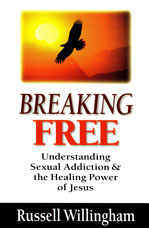Last Friday, I wrote about you being God’s favorite.
I talked about John, and his description of himself as the disciple whom Jesus loved. I shared that our position is the same as John’s. If we are followers of Jesus, we are the beloved (favorites) of God. And how if we lived out of that truth, that we are truly God’s favorite, our lives would be changed forever.
The question I left you with last week was this: do you treat yourself as if you are a cherished, precious possession of an all-powerful, all-loving God?
Did you think about that?
Next question: what does it mean to be God’s Beloved?
The Greek word, Agapetos, is primarily translated “beloved” in the New Testament. It also means “esteemed, very dear, favorite, worthy of love”.
Worthy of love.
This may seem random, but I encourage you to read my “What’s In a Name” testimony, part 1 & part 2. In it, I talk about the names we have attached to ourselves or allowed others to attach to us throughout our lives, and how God the Father calls us worth knowing, worth loving and worth creating.
He calls you beloved.
Back to the question of the day. What does it mean to be God’s Beloved?
The Greek word Agapetos, the word we translate as “beloved”, was used 60 times in the New Testament. 60 times!
The first instance of use is in Matthew 3:17. “And behold, a voice out of the heavens said, ‘This is My beloved Son, in whom I am well-pleased.'”
Jesus was the original “beloved” child of God.
God said this to Jesus at the very beginning of His public ministry.
Jesus hadn’t done anything.
He hadn’t performed any miracles (this moment is not recorded in John’s gospel, and turning water into wine is considered to be Jesus’s first miracle), preached any sermons (unless you count his discussions in the temple at age 12). It appears He didn’t even have any disciples at this point.
And yet – God was pleased with Jesus. He called Jesus “beloved”.
Through Jesus, if we are followers of Him, we are also God’s beloved children.
51 of the occurrences of “Agapetos” in the New Testament are in the Epistles. It’s always used when addressing the audience of the letter, or the congregations in a particular town.
A few examples:
“Therefore be imitators of God, as beloved children; and walk in love, just as Christ also loved you and gave Himself up for us, an offering and a sacrifice to God as a fragrant aroma.” Ephesians 5:1-2
“Beloved, let us love one another, for love is from God; and everyone who loves is born of God and knows God.” 1 John 4:7
“Listen, my beloved brethren : did not God choose the poor of this world to be rich in faith and heirs of the kingdom which He promised to those who love Him?” James 2:5
Different Biblical authors (Paul John, James, Jude, Peter, the author of Hebrews) remind us frequently in their letters of who we are in Christ, that we are God’s beloved. John was no exception. In fact, John liked the word so much that he used in 4 times in his last epistle, a letter that was only 15 verses long.
John and the other authors wanted to make sure we didn’t forget our position as the “beloved children of God”.
Being beloved means that, like John said, we are the one whom Jesus loves. It means God’s very fond of us, that He not only loves us, but He actually really likes us.
Do you ever feel like God is just putting up with you because He has to?
Or do you honestly believe that God likes you, not just loves you because theologically, God has to love you?
God says through Isaiah, “Do not fear, for I have redeemed you; I have called you by name; you are Mine! You are precious in My sight…………you are honored and I love you……..For the mountains may be removed and the hills may shake, But My lovingkindness will not be removed from you’ Says the LORD who has compassion on you.”
The Hebrew word, Racham, translated “to have compassion” can also be translated “to have tender affection”.
I challenge you to read through the Old Testament and replace the word “compassion” with “tender affections”. Do you believe that God could have tender feelings for you?
Author Richard Foster says this about God: “His heart is the most sensitive and tender of all. No act goes unnoticed, no matter how insignificant or small. A cup of cold water is enough to put tears in the eyes of God. Like a proud mother who is thrilled to receive a bouquet of wilted dandelions from her child, so God celebrates our feeble expressions of gratitude.”
Being “beloved” means we are fully accepted, fully worthy to be loved by God, we are very dear to Him, that we are in fact His “favorite”. That nothing we could do could make God love us any more, and nothing we could do could make God love us any less.
Worth knowing, worth loving, worth creating.
Rest in that.
You Are God’s Favorite, Part 3




